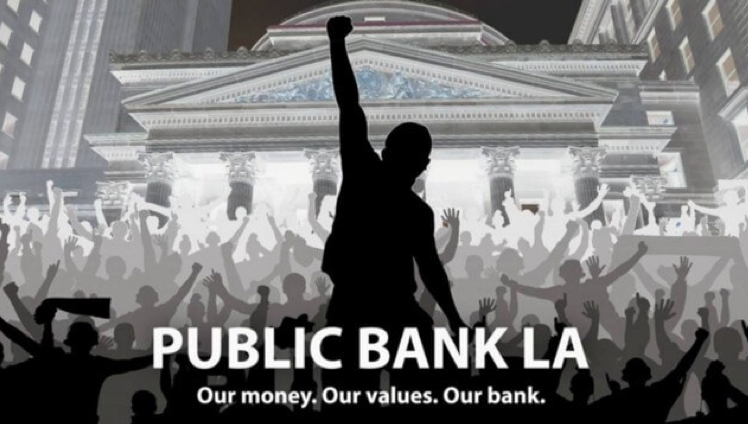CommentsLA WATCHDOG--In November of 2018, 56% of the City’s voters rejected Charter Amendment B that would have allowed the City to establish a municipal bank despite the measure being endorsed by 170 organizations and members of the political establishment, including Mayor Eric Garcetti and 12 members of the City Council, including then City Council President Herb Wesson, the prime mover of this ballot measure.
Fortunately, voters followed the advice of the Los Angeles Times that opined that “voters should say “no” to [Charter Amendment B’s] airy promises” and that “Charter Amendment B is one of the most ill-conceived, half-baked measures to come out of City Hall in years, and that’s saying something.”
However, contrary to the will of the voters, the City Council, led by Wesson, wannabe Controller Paul Koretz, and Councilman Mike Bonin, is now pursuing the establishment of a municipally owned bank by directing the Chief Legislative Analyst and the City Attorney to obtain “consultant services needed to conduct policy, fiscal, and economic analyses related to the formation of a public bank serving the City of Los Angeles.”
It also appears that the City Council is trying to avoid another vote to approve the bank despite Wesson’s previous statement that he “intends to bring the bank proposal back to the ballot again after the idea has been fleshed out so voters can approve the final concept.”
The proponents of the bank are making the same old arguments: a public bank will save money on interest and fees, allow the City to divest from the large money center banks, build more affordable housing at a lower cost, finance green energy projects, and help small businesses.
While the proponents are buying into the myths surrounding public banks, they are ignoring the financial realities, including the need for millions in capital for reserves and liquidity, the “exorbitant” start-up costs, the high cost of data processing systems, and the annual losses until the bank’s operations reach breakeven. There is also the need for experienced management and independent oversight, especially of the loan portfolio given the likelihood of political interference.
In its recent report to the City Council, the CLA discussed San Francisco’s study which indicated that the establishment of a bank would require $1.6 billion in capital and it would take 31 years to breakeven.
A public bank has been aptly described as “a vehicle for politicians to divert legislatively designated funds into a blind pool to fund noneconomic pet projects and loans to politically connected, uncreditworthy borrowers, resulting in losses that will have a materially adverse impact on the bank’s ability to continue as a going concern and on the City’s credit rating.”
The City, which is grappling with a $200 million deficit this year, a $1.2 billion cumulative budget deficit over the next four years, a $15 billion unfunded pension liability, and a $10 billion deferred maintenance budget, does not have the financial wherewithal to establish a capital intensive bank that will take years to breakeven.
Rather than spending up to $1 million for bank consultants, lawyers, and political consultants to draft a ballot measure, the City should follow the will of the voters and deep six the idea of establishing the City owned Bank of Los Angeles.
**************************
05 AUGUST 2019
Will We Have the Right to Vote on Wesson’s Municipal Bank of Los Angeles?
24 OCTOBER 2019
(Jack Humphreville writes LA Watchdog for CityWatch. He is the President of the DWP Advocacy Committee and is the Budget and DWP representative for the Greater Wilshire Neighborhood Council. He is a Neighborhood Council Budget Advocate. He can be reached at: [email protected].)
-cw

















